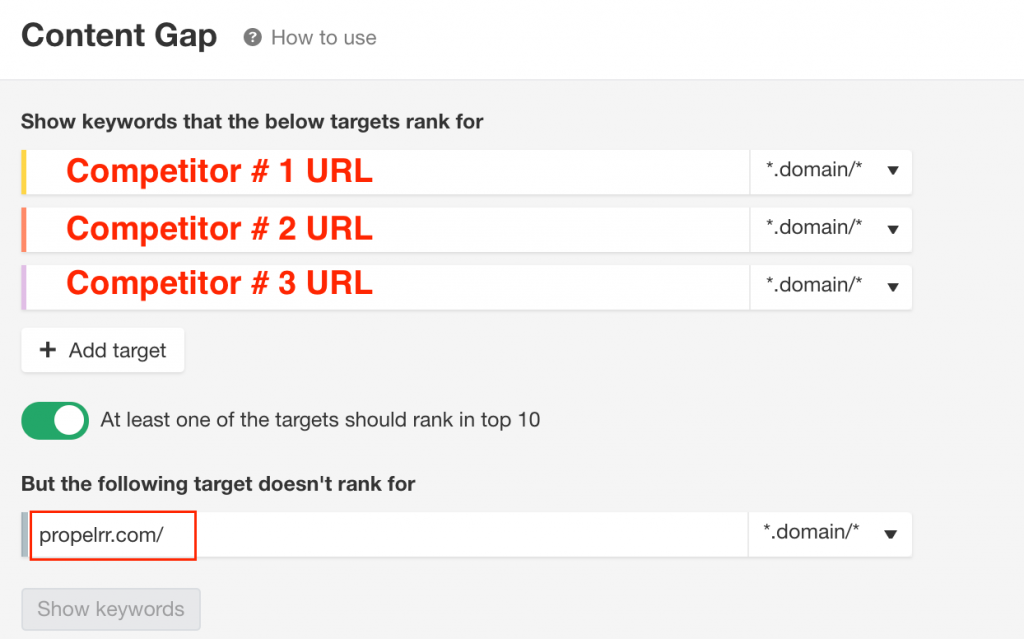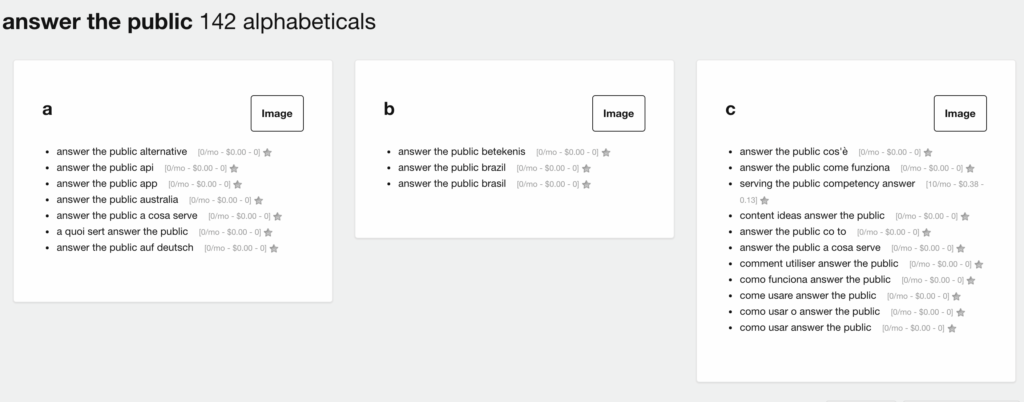5 Keyword Research Tips For Better Search Performance
Author & Editor
Content Team Lead
Published on: Apr 19, 2021 Updated on: May 23, 2024

Table of Contents
Keyword research is essential in any SEO campaign. It’s a living and breathing document that directs optimization and steers content in the right direction.
But like all things, keyword research needs to be updated and reevaluated over time. Do you just go over your established keyword process? Or are there other ways to expand your list?
As an SEO agency in the Philippines, we’re constantly updating our keywords and making sure our files are updated with the latest queries, trends, and metrics for a solid SEO strategy and implementation.
Why is it important to update your keyword research?
1. Improve your current position of SERPs.
Search is an ever-updating and evolving algorithm. With all updates and trends going on, it’s important to keep track and be updated with your business’ niche keywords to make sure your optimizations are in place and working for your website.
Maybe the keywords you’re using are dropping in terms of impressions because of a new term being used. Or your content is still optimized to 2019 when a simple change of date can indicate content freshness and credibility, not to mention SERP visibility.
2. Spot untapped keywords and topics.
Similar to trends, there may be new developments, terms, and breakthroughs in your industry that weren’t visible on Search yet when you were creating your keyword list.
A quick update and reevaluation of your current keywords can bring light to new and potential topics or shed light to user interest or queries that weren’t asked or talked about yet. With just a quick refresh on your file, you can now connect better and provide useful information to your audience.
There are more reasons but the two above should be enough reason for expanding your keywords list for a fresh and more updated file to back up your SEO efforts and implementations.
Keyword Research Tips To Expand Your Keyword List
While you can follow our original keyword research guide, we have a few keyword research tips up our sleeves that can save you the time and trouble in expanding your keyword list:
1. Pull all existing keyword data from your website.
If your website already has indexed and ranking pages, then it’s best to start your update from the inside out. There are multiple ways and tools for you to do this, but we’ll cite our trusted tool and method: Google Search Console.
Access your Google Search Console data and pull at least 3 months' worth (or more, up to you) of queries to get a good overview of your current performance.

You can export that with respective search metrics like Impressions, Clicks, Average Position, and Click-Through-Rate to help you in prioritization.
Here are a few questions or prompts to help you make sense of your existing keyword data:
- If you spot keywords that have no landing page attributed, maybe it’s time to create a new page or content to cater to that keyword?
- If a specific page is ranking for multiple high-impression keywords but your content is limited or outdated, is it time to update the content? Better yet, expand it into something bigger or more comprehensive?
- Is there a specific keyword that is a few positions shy from the Top 5 or 3 on SERP? What can we do to boost that? Is it an on-page optimization or a work better for off-page?
Not only will this expand your keyword list, but it will even give you a few hints on some on-page optimizations as well.
2. Conduct a content gap and competitor audit.
Inspect your competitors, both Direct and SERP, to see what keywords they’re ranking in that you might be missing out on. One good way to do this is using Ahref’s Content Gap Analysis tool.
For direct competitors, place your competitor’s URL domain and compare it with yours like this:

This will give you the keywords your competitors are ranking in on the top 10 of the SERP. It will also show if a competitor’s keywords are ranking on any SERP feature. This will help you optimize your page and content for those features to snag the top position or at least improve your search visibility.
A similar process can be done with your SERP competitors, but you have to place the specific URL of the page versus the page you want to compare it with. If you don’t have that page yet and you’ve yet to create it, you can leave the bottom field (but the following target doesn’t rank for) blank and see your competitor’s keywords.
As mentioned earlier, knowing your competitors’ keywords gives you an idea of what you might be missing out on in terms of topics and content. You’ll be able to see what strategies they’re doing and can come up with a few improvements in your process that can help finetune and update your process.
For example, you see that their high-traffic pages and top-ranking keywords are mostly long-tail. You can now then make a hypothesis that using that content marketing can give you a deliberate advantage over your competitors.
3. Expand your list with multiple keyword tools.
While we may have only mentioned two tools, for now, there are many more paid and free keyword research tools you can use to expand your current keyword file.
To name a few of our worthy favorites:
- Ahrefs Keyword Explorer
- SEMRush
- Keyword Finder
- Keyword Planner
- Majestic
- Moz Keyword Explorer
Don’t forget to include Google’s own tools like:
- Google Search Console
- Google Keyword Planner
- Google Trends
Whichever digital marketing tools you use, each can improve and expand your research and give light to new and different content opportunities. Just make sure to choose which one best fits your needs and your budget wisely!
TIP: These are just tools, the real power is in how you use them to expand and upgrade your keyword research.
4. Search for more long-tail keywords.
Long-tail keywords have long been the heroes of every SEO and content marketing strategy and for good reason.
These are longer yet more keywords or phrases that visitors are more likely to use when they're using search. They seem to have low to none potential at first given their low search volume but they can be extremely valuable if you know how to use them properly.
Use query tools and generators like AnswerThePublic or AlsoAsked.com. Even Ahrefs Keywords Explorer has a “Questions” section you can use.

Search more of these keywords and don’t be afraid to use it to expand your keyword list. These are the type of keywords that content marketers would love to see (I can attest!) as it already presents an article in itself.
5. Find keywords that forums rank on.
Similar to the previous tip, forums are a gold mine for long-tail keywords!
Popular forums like Quora and Reddit have millions of user queries that you can use and add to your list. You still have to check though if they’re viable to use by looking for search volume, clicks, or potential traffic.
You can also go more granular and search industry-specific forums to tap into those user questions and queries. Even the best SEO tools can’t pull all the data and information you need.
Sometimes going niche and specific is the best way to unearth the best keywords and queries your customers are dying to know about.
Key Takeaways
These keyword research tips will help you expand your current keyword research to discover a wealth of new keyword and content opportunities.
- Update your keyword research regularly to keep tabs on new trends or topics floating around in your keywords space.
- Use as many keyword tools and sources such as forums to expand your list further and make it more specific to your industry or niche.
- Add long-tail keywords to your keyword research file — it helps determine the content and pages needed to better reach your audience easier.
Have any thoughts or best practices on keyword research you’d like to share? Leave a comment below or better yet, talk to us over at Facebook, X, or LinkedIn. We’re always up for a good talk on SEO.
